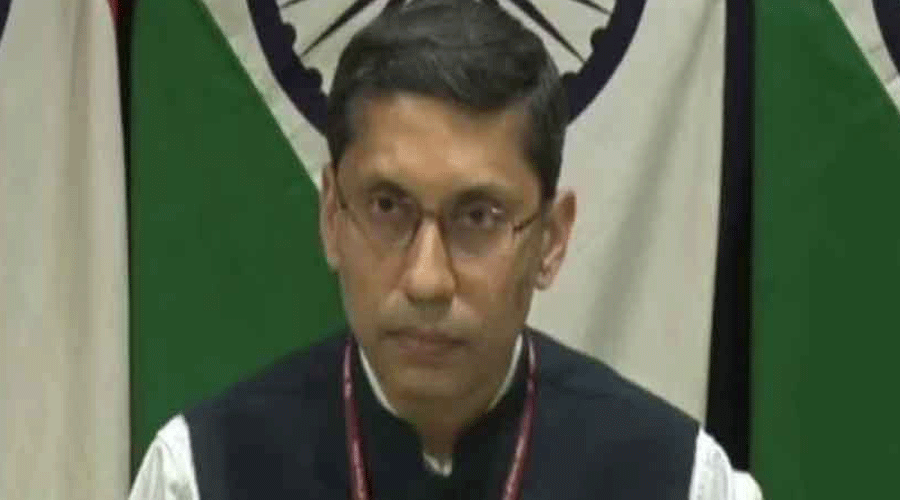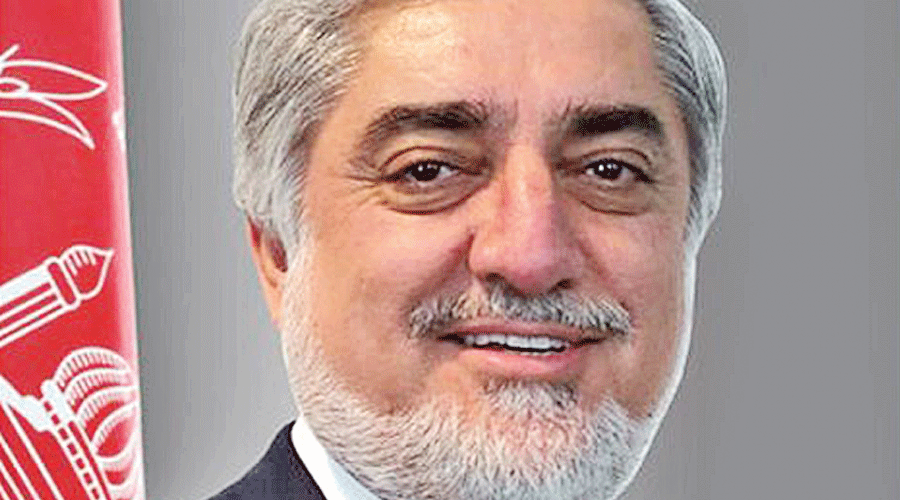India on Thursday sent its first delegation to Kabul since the Taliban takeover, despatching a team led by an external affairs ministry joint secretary.
J.P. Singh, joint secretary (Pakistan, Afghanistan and Iran), met Mawlawi Amir Khan Muttaqi, acting foreign minister of Afghanistan, who invited India to resume its diplomatic presence in his country.
India, however, remained non-committal whether the visit was tantamount to recognition of the Taliban or an indication that New Delhi planned to send its diplomats back to Kabul in the near future.
In the evening, the Taliban government released pictures of the meeting.
Abdul Qahar Balkhi, spokesman for the Taliban’s foreign ministry, later tweeted that “the meeting focused on India-Afghan diplomatic relations, bilateral trade and humanitarian aid”.
Muttaqi, according to Balkhi, described the visit — the first by an Indian delegation to Kabul since August 15 last year when the Afghan capital fell to the Taliban — as a “good beginning in ties between the two countries”.
The foreign ministry in Kabul underscored “the resumption of projects by India, their diplomatic presence in Afghanistan & the provision of consular services to Afghans, particularly to Afghan students & patients”.
The Kabul ministry thanked India for the humanitarian assistance it has been sending.
Balkhi said the Indian delegation had “sought positive relations with Afghanistan as in the past”. He added that India had said it would consider assisting and working with Afghanistan in various fields.
Although India had announced the visit in the morning, external affairs ministry spokesperson Arindam Bagchi did not provide any details on what had transpired when he held his weekly media briefing in the evening.
On the subject of reopening the Kabul embassy, Bagchi underscored that it was technically still open as local staff had continued to function and ensure upkeep of the premises after New Delhi brought back all India-based officials from the mission and the consulates.
“Our local staff have also been assisting in the delivery of humanitarian assistance,” he said.
As for recognition of the Taliban, Bagchi underlined that India had had official contact with the Taliban earlier. “Don’t read too much into this,” he said.
India had its first contact with a senior Taliban leader on August 31 last year when Sher Mohammad Abbas Stanekzai met the Indian ambassador to Qatar, Deepak Mittal, at the embassy in Doha.
In October, the Taliban announced it had had a bilateral meeting with Singh on the sidelines of the Moscow Format meeting on Afghanistan, but India never confirmed this.
Mittal was joint secretary (PAI) before Singh, who has done an Afghan positing.
Announcing the visit without revealing the schedule, the Indian ministry had said: “A team led by joint secretary (PAI), ministry of external affairs, is currently on a visit to Kabul to oversee the delivery operations of our humanitarian assistance to Afghanistan.”
According to Bagchi, the announcement was made almost in “real time”. He, however, refused to reveal the team’s size or itinerary beyond saying it was a “multi-member team”.
“Suffice it to say that it is of relevant officials who are required to oversee the humanitarian assistance delivery,” Bagchi said.
Besides senior Taliban members, the team is expected to meet representatives of the international organisations involved in the distribution of the humanitarian aid and visit places where Indian programmes and projects are being implemented.
Singh on Thursday visited the Indira Gandhi Institute of Child Health and the Habiba High School in Kabul besides the Chimtala sub-station near the Afghan capital. India built the hospital in 1972, funded the school’s rebuilding in 2003 and built the sub-station in 2009 as part of the reconstruction of Afghanistan.
Less than a dozen countries have established diplomatic relations with the new Afghan regime. These are China, Iran, Malaysia, Pakistan, Qatar, Russia, Saudi Arabia and Turkmenistan.











